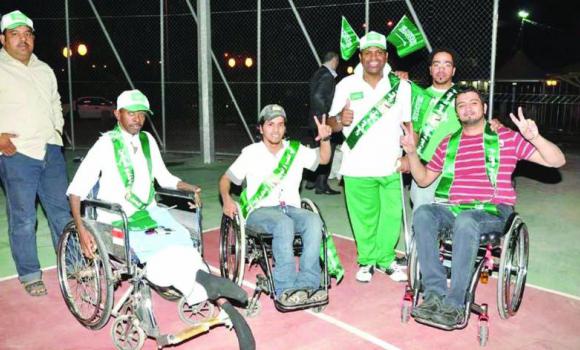
Jeddah, Sep 21: Jubilation is around the corner for Saudi society, which will be celebrating the country’s National Day on Monday. A myriad of cultural and recreational activities will be held to express their patriotic fervor for the nation.
Riyadh, considered the foundation for the modern Kingdom, is at the forefront of celebrations, but people in various regions are also getting ready to celebrate. Governorates are chalking out displays of Saudi heritage.
Establishments are expected to go green on the day. Hundreds of shops are busy selling merchandise to children and youth, ranging from bracelets to portraits of Custodian of the Two Holy Mosques King Abdullah.
Gift shops are going green and have removed regular items from their shelves until Monday. The general price rise syndrome has not hit National Day items, as most Chinese-made items are being sold in the range of SR3 to SR150, the same prices that prevailed last year.
Caps, flags, badges, T-shirts, bracelets, rings, nontoxic facial decoration items, portraits of King Abdullah, wall posters, hand bags, shopping bags, cups, plates, large-sized eye-wear and most importantly, balloons and gift items in green, are selling out fast.
Shops in Jamiah, Kilo 5, Safa and the Balad districts sell such items and women are also flocking to these places.
Seasonal street vendors have also risen to the occasion, positioning themselves at roundabouts and intersections around the city to display their goods. Most of them sell flags, stickers, shumagh and scarves.
Ahmed Omar, a salesman at a leading general store in downtown Jeddah, told Arab News: “Shopping has begun much earlier this year compared to previous years and the response has been overwhelming, with customers coming even during the morning hours.” The Corniche in Jeddah will hold a series of activities over the weekend, with attractions and competitions for residents and visitors, although the Jeddah Municipality has not yet specified a venue for the celebrations.
The Jeddah Chamber of Commerce and Industry has extended support to 40,000 students and a Saudi artist in their efforts to establish a world record by creating a 10,000 square meter map with hand prints.
Beaches in Alkhobar and Dammam will also put on firework displays on the eve of the National Day.
In Riyadh, the municipality has earmarked seven different locations for festivities.






Comments
Add new comment